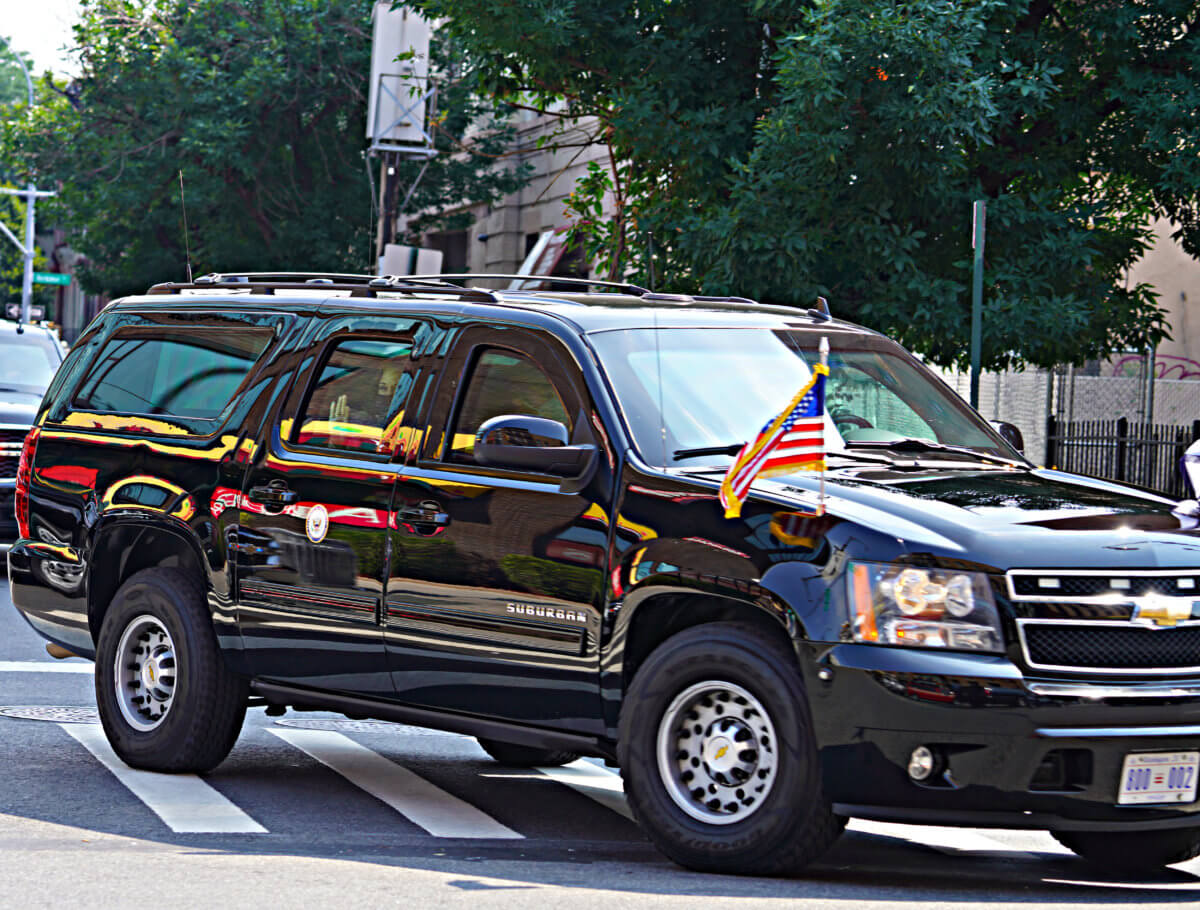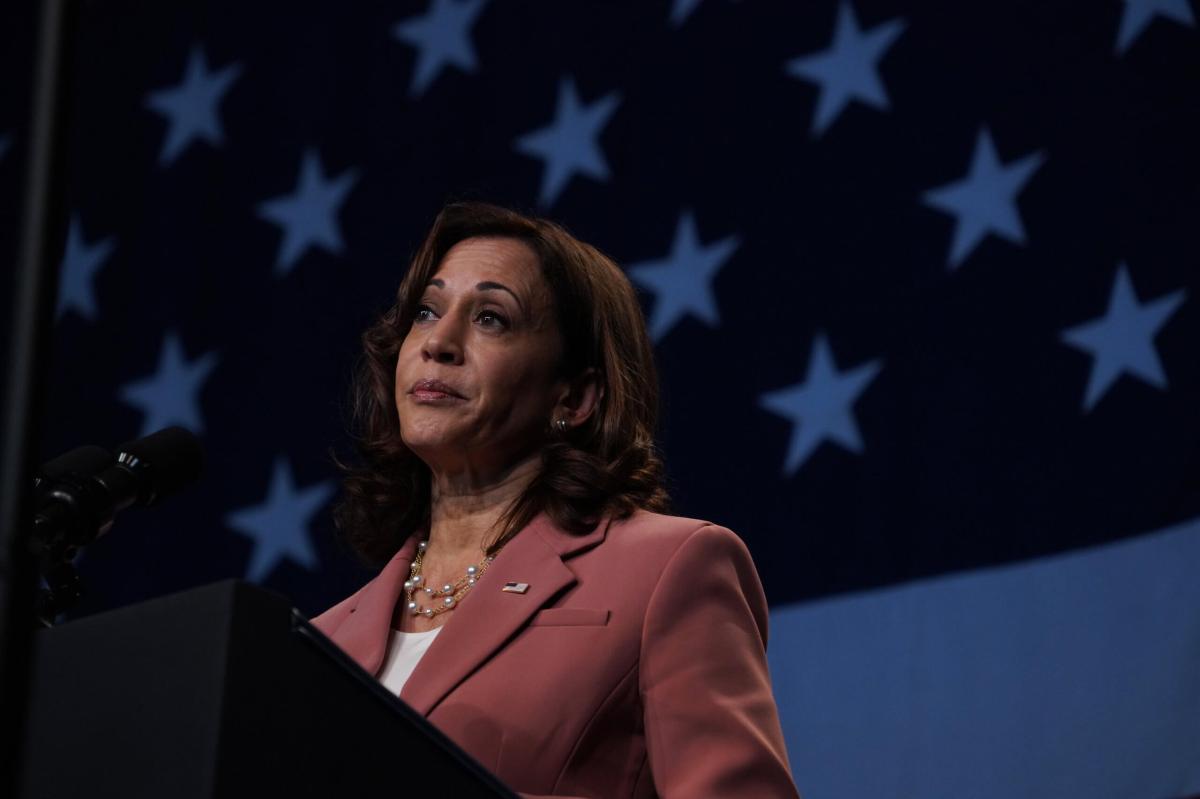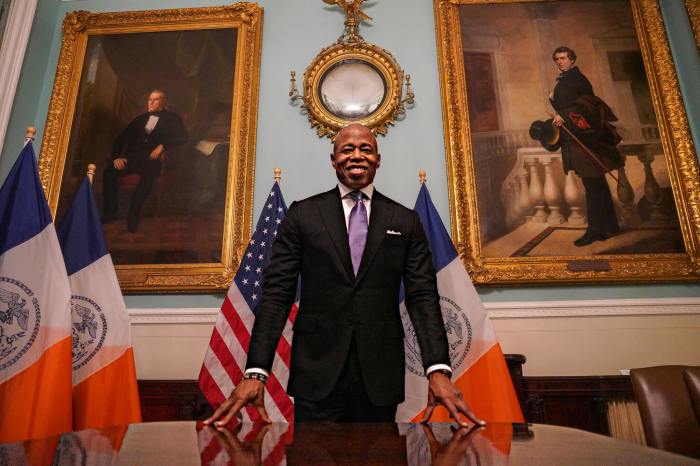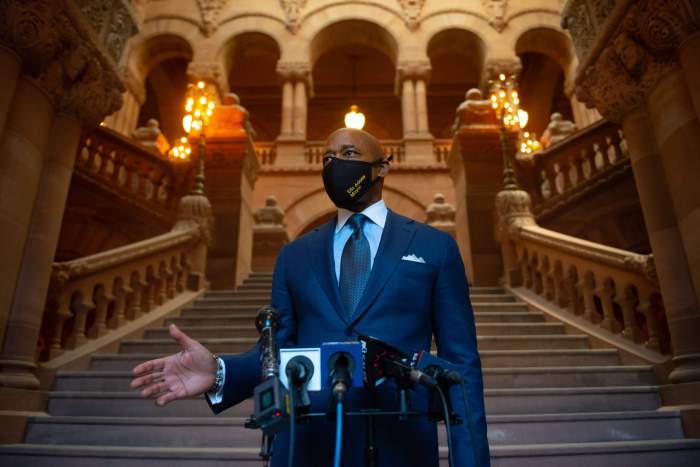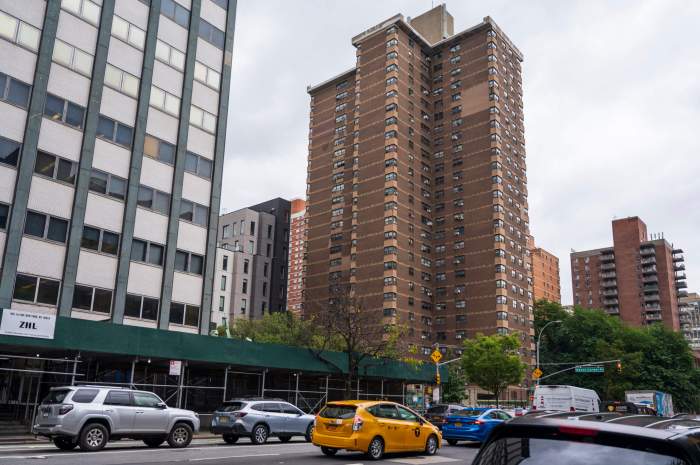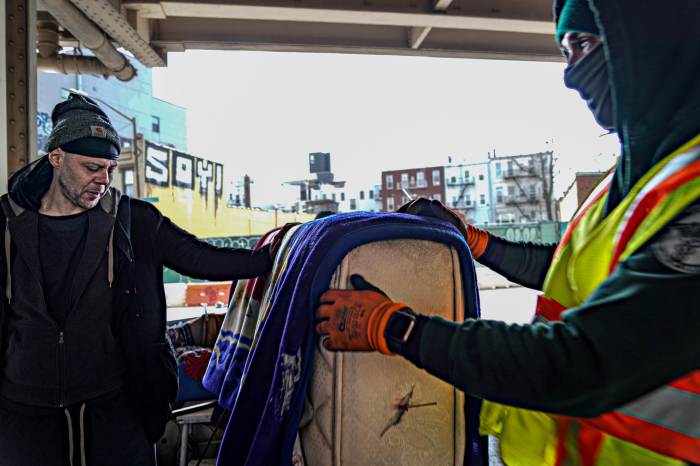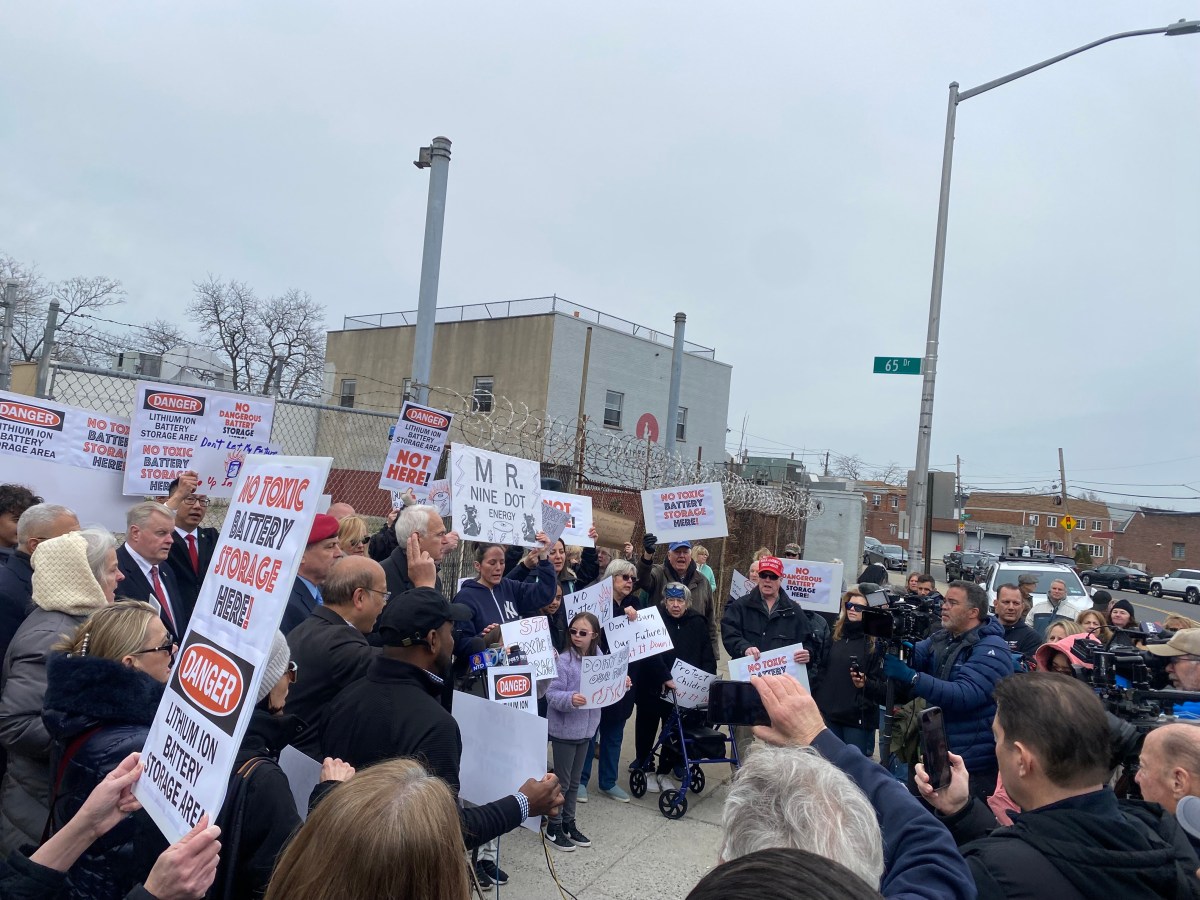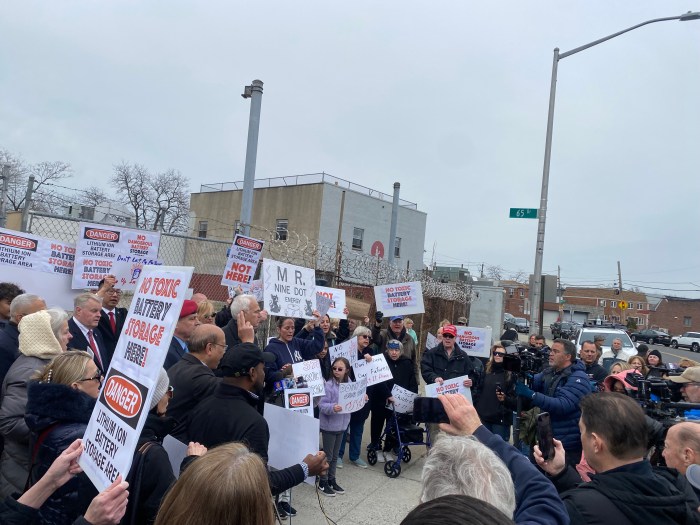Vice President Kamala Harris traveled to Brooklyn Thursday to announce the formation of the Economic Opportunity Coalition (EOC) to help serve underprivileged communities.
The presidential visit took place inside of Bedford-Stuyvesant’s Restoration Plaza at 1368 Fulton St., where Harris took to a stage shrouded by a gigantic Star-Spangled Banner. She announced the coalition of 24 companies and foundations, which will invest tens of billions of dollars in underserved communities.
Prior to the declaration, Harris met with the freshly formed EOC members, small business leaders, local residents, and financial service providers for what was dubbed a first-of-its-kind community development corporation based in Brooklyn.
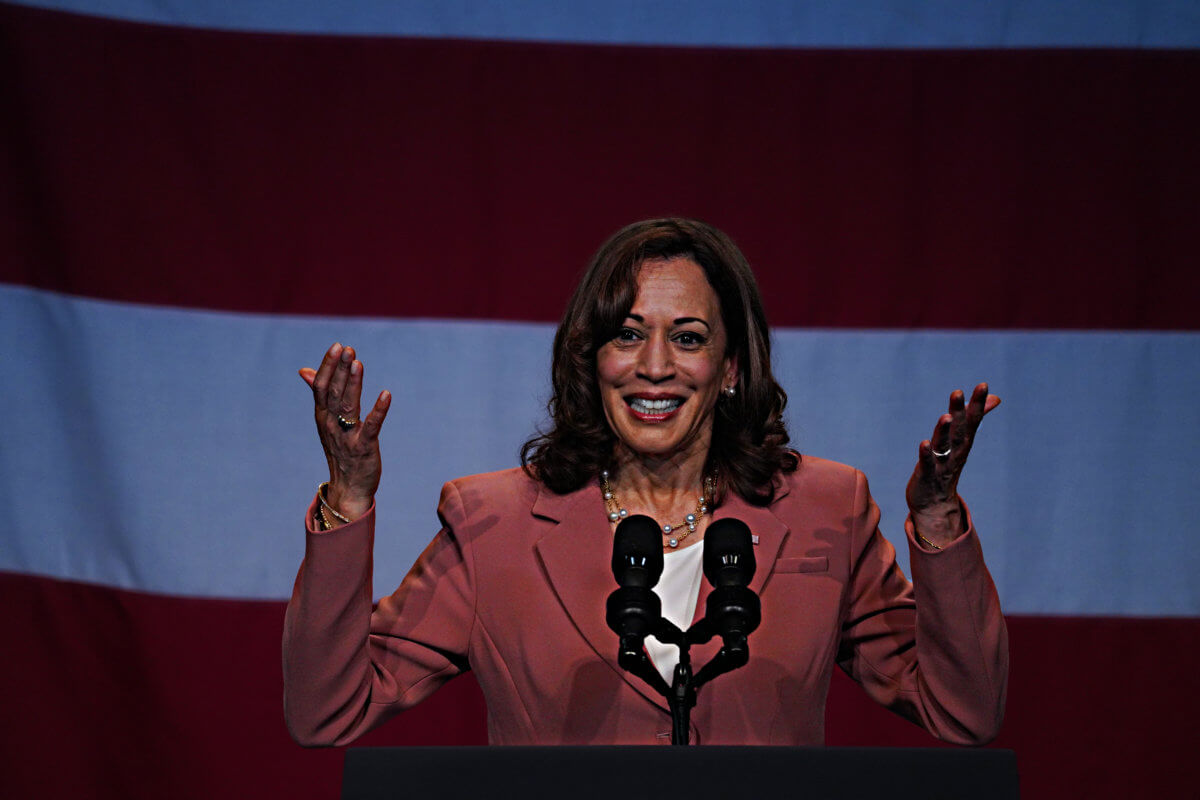
“Today, after a year of revenue, our economy is slowing down,” Harris said, acknowledging reports earlier that morning that the national economy shrank 0.9% in the second quarter of this year. “But our nation’s economic outlook remains strong. Today we have near record low unemployment. We have a strong job market and consumer spending is continuing to grow. That said, we know there’s still more work to be done. Inflation is still too high and low enough to be a main priority of our administration. Our administration remains focused on additional efforts to build a strong economy that works for all people.”
This initiative is the first of its kind, and while it will be based in Brooklyn, it will focus on expanding access to capital and community development throughout the state.
Since the COVID-19 pandemic exacerbated already marginalized communities, the Biden administration shared that they are striving to amend these disparities and in doing so strengthen the overall economy. Calling these investments long overdue, the administration states that they are working to provide more pathways to economic growth for underserved communities by deploying products that solve challenges, supplying resources, and driving toward meaningful outcomes through private and public investments, which includes the EOC.
Of the 21 foundations involved in the EOC, the founding members include Ariel Investments, Bank of America, BNY Mellon, Capital One, Citi, Discover, Ford Foundation, Goldman Sachs, Google, Key Bank, Kresge Foundation, Mastercard, McDonald’s, McKinsey & Company, Micron, Momentus Capital, Moody’s, Netflix, Next Street, PayPal, PNC, The Rockefeller Foundation, TIAA, and Upstart.
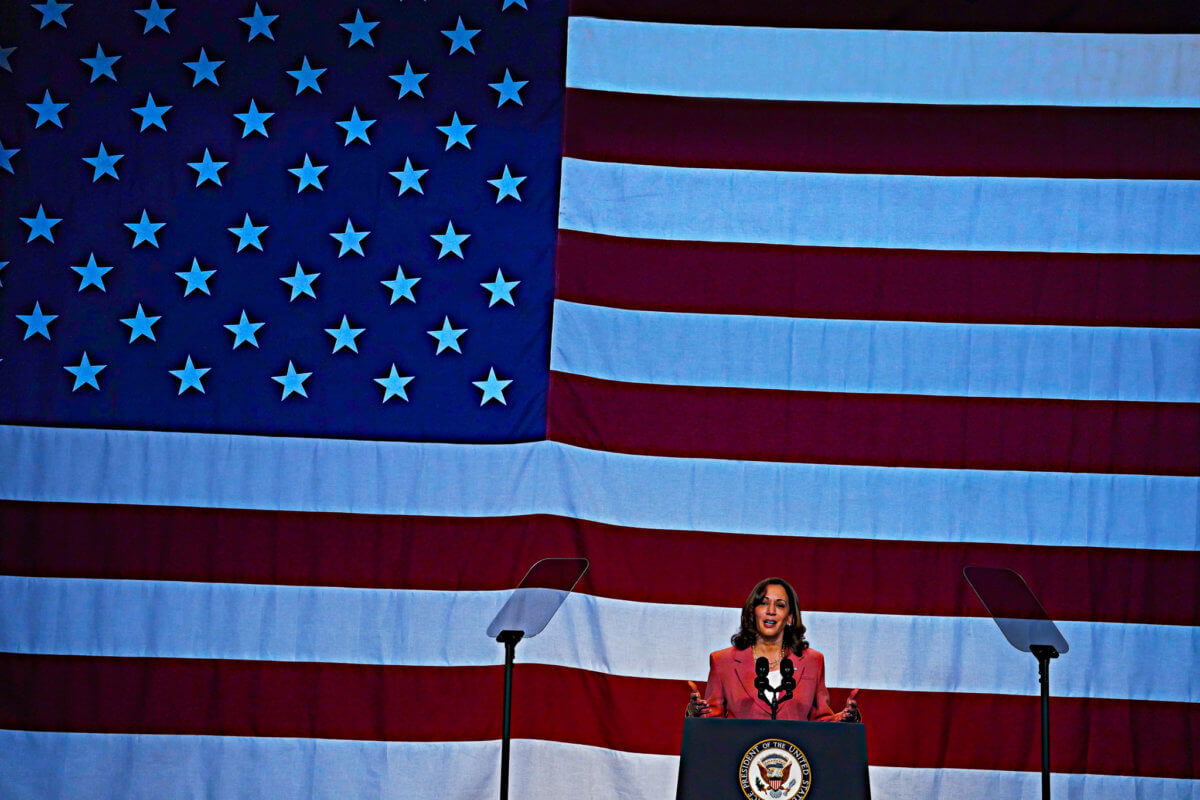
Federal agencies collaborate for community support
In addition to unveiling the creation of the EOC, Harris also announced to maximize the impact in these communities, six federal agencies will be collaborating to align federal dollars. The Departments of the Departments of the Treasury, Commerce, Transportation, Housing and Urban Development, and Agriculture and the Small Business Administration will utilize funding to address economic disparities and facilitate opportunities from the public and private sector to leverage and layer resources.
These efforts will help support entrepreneurship, minority-owned businesses, and infrastructure investment to increase community wealth.
In doing so, these departments signed the Memorandum of Understanding (MOU), which will align definitions and procedures for programming and funding, including documentation requirements, coordinate local resource deployment, seek flexibility for requirements in federal support including tax credits, equity loans, and more. Additionally, these agencies will work together to identify and enhance technical assistance and other non-financial resources for communities in need.
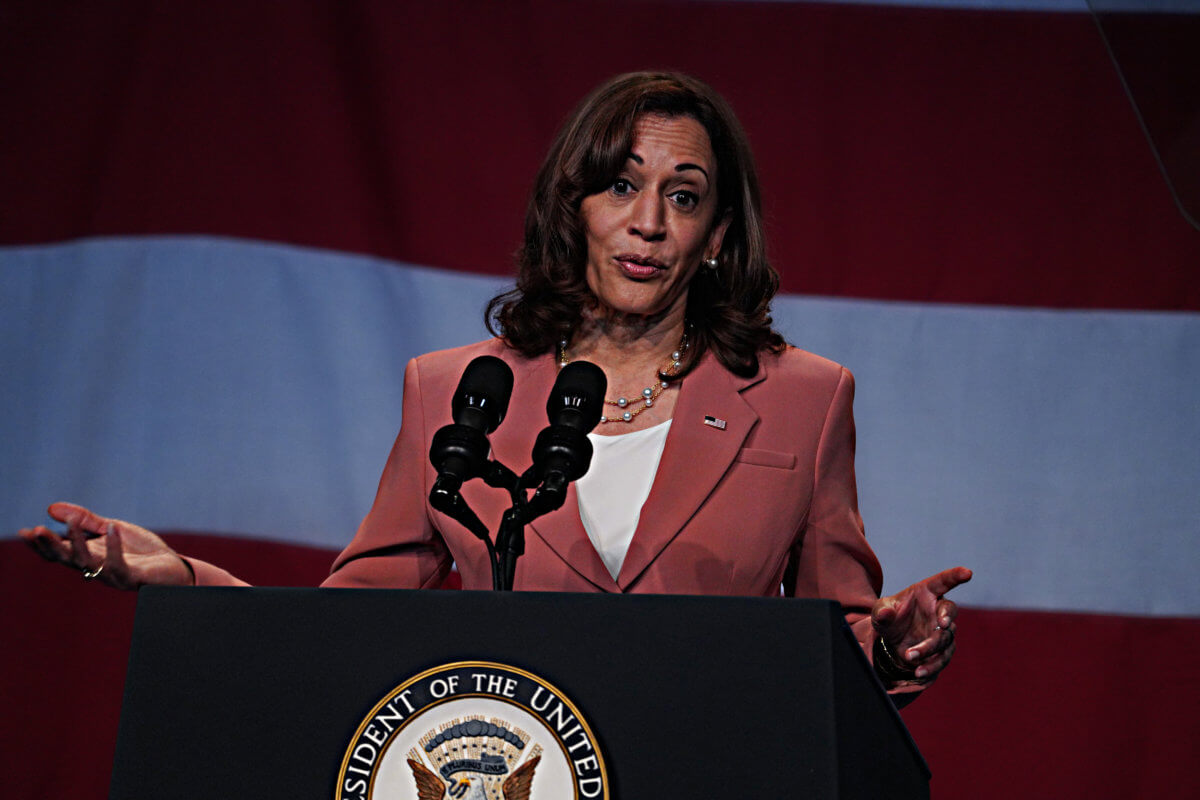
“America is a nation powered by the ambition, exploration. The ambition and the aspiration to turn dreams into reality, including the aspiration and dream to start a business, to own a home, to get an education. That is the energy and the ambition that has always been a driver of America moving forward. It creates jobs, it sparks innovation, it expands the economy, and it makes our nation more competitive,” Vice President Harris said. “But achieving that success requires a number of very specific things and in particular, it requires access to capital. For example, to buy inventory, to make the down payments, to hire employees, and it requires access to financial services. Services, like checking and savings accounts, home and auto loans, financial education and advice. And well, we know that not everyone has equal access to this essential support.”
According to the vice president, Black entrepreneurs are three times more likely to report that they did not apply for a loan since they were afraid of being turned away at the bank—a fear that has been perpetuated by family, friends, and neighbors’ experiences. Black and Latinos are rejected from mortgage loans at a higher rate by traditional financial institutions. Members of the Asian American and Pacific Island communities had numerous issues accessing home and banking services due to language barriers and lack of translators available.
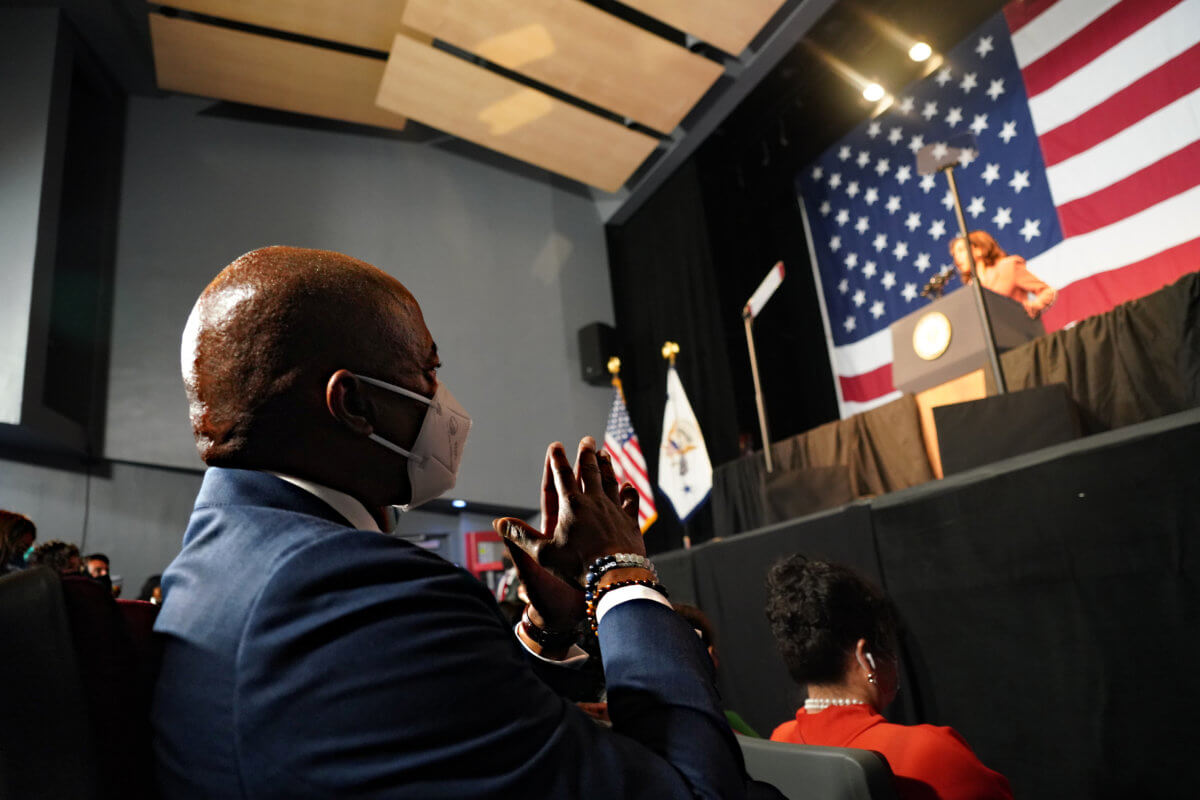
“All across our nation, there are places like this, reservoirs of ambition and aspiration waiting to be tapped. The mission of our coalition and the mission of our administration is to match potential with opportunity in every community across our nation,” Harris said.
Mayor Eric Adams applauded the announcement stating that New York needs all the help it can get from Washington DC it can get.
“We know that communities of color are more likely to live in neighborhoods with the lack of healthy food options, green spaces, recreational facilities lighting or safety. We have to invest in those communities and make sure they are access access to capital,” Mayor Adams said.
